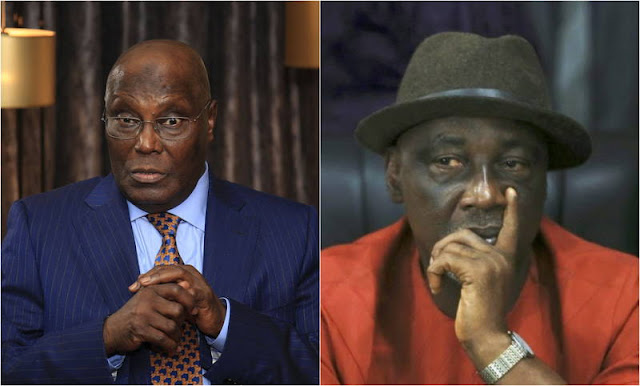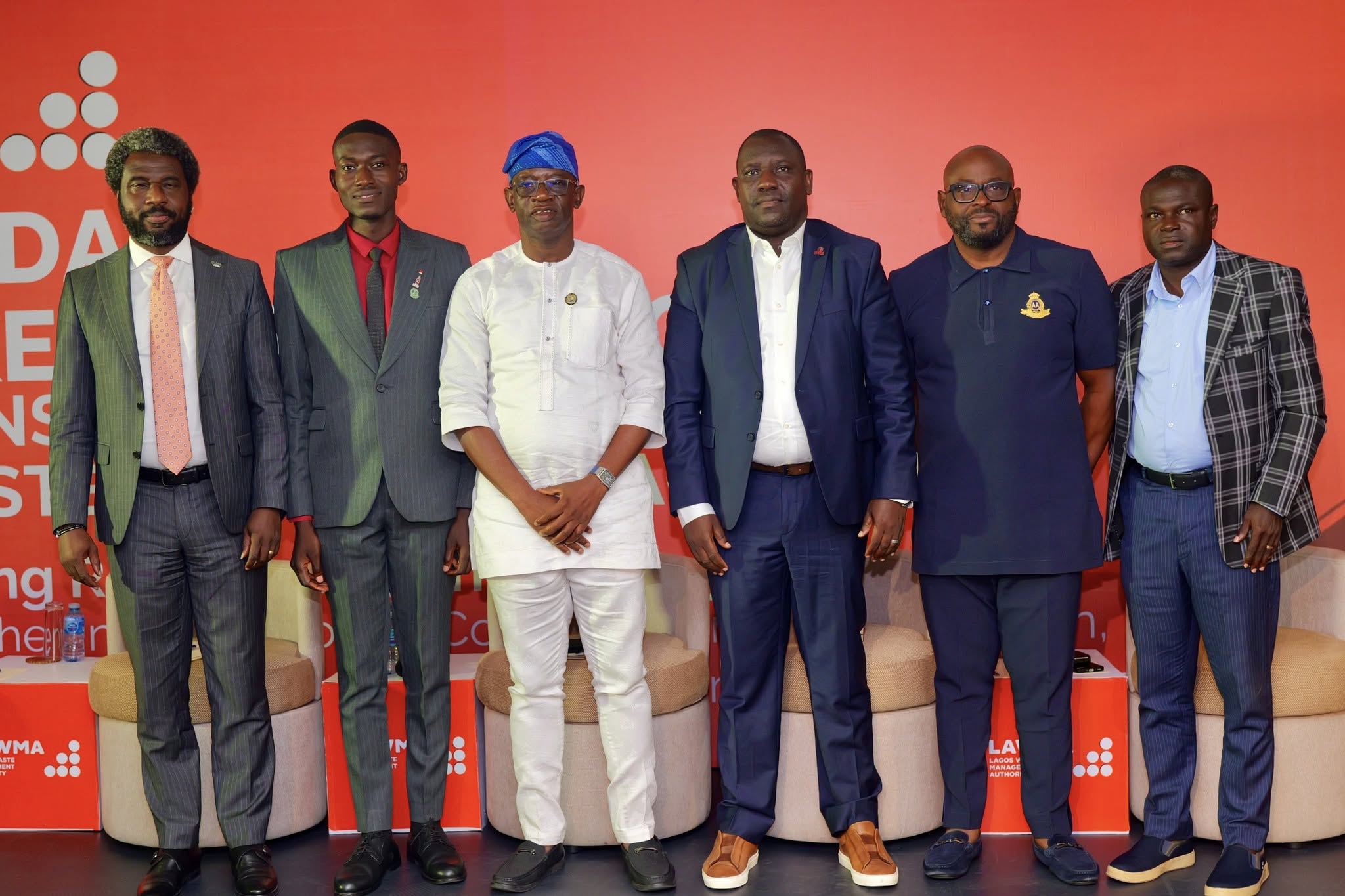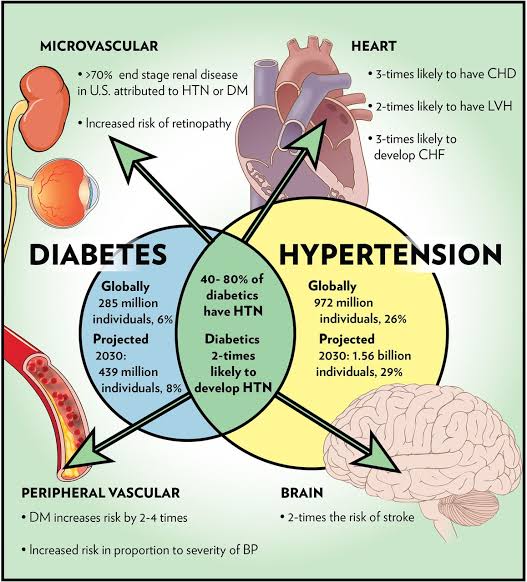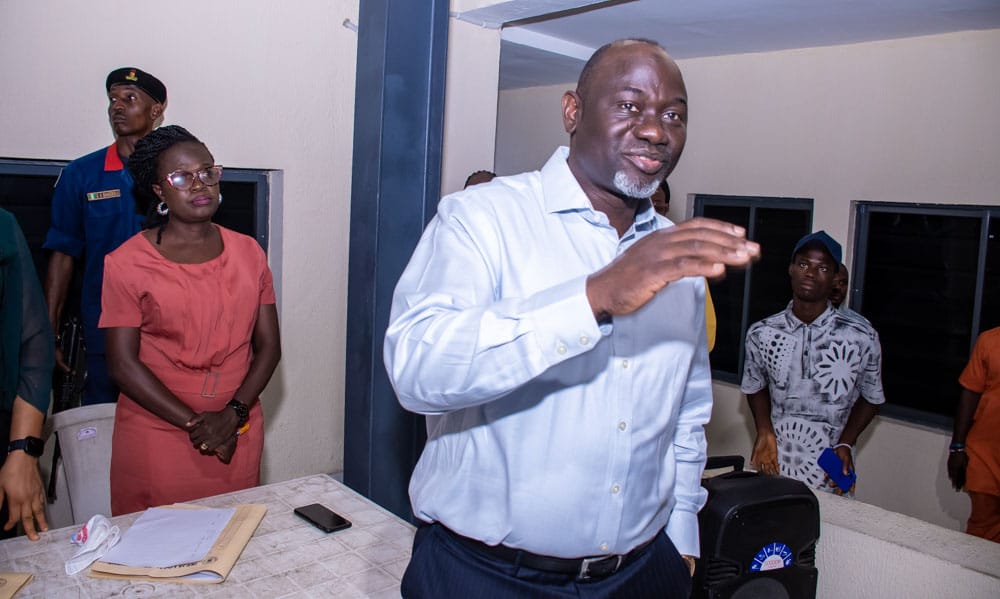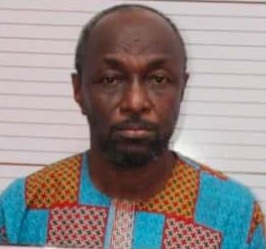In a candid admission that has sent ripples through Nigeria’s political landscape, Senate Minority Leader Senator Abba Moro has declared that the Peoples Democratic Party (PDP) committed a grave error by selecting former Vice President Atiku Abubakar as its presidential candidate for the 2023 general elections. Speaking on Channels Television’s Politics Today on Tuesday, August 26, 2025, Moro described the decision to abandon the party’s long-standing zoning arrangement and field a northern candidate to succeed a northern president as a “costly mistake” that significantly contributed to the PDP’s electoral defeat.
The revelation, coming less than two years before the 2027 elections, underscores the party’s determination to learn from its past and reposition itself as a formidable force to challenge the ruling All Progressives Congress (APC). This article explores the implications of Moro’s statements, the PDP’s strategic recalibration, and the broader context of Nigeria’s evolving political dynamics.
A Costly Miscalculation
The PDP’s decision to field Atiku Abubakar, a northerner from Adamawa State, as its presidential candidate in 2023 marked a significant departure from the party’s tradition of zoning its presidential ticket between Nigeria’s northern and southern regions. Zoning, a practice deeply ingrained in Nigerian politics, is designed to ensure regional balance and prevent the domination of political power by one region. The PDP’s adherence to this principle had historically helped it maintain a broad national appeal, allowing it to govern Nigeria from 1999 to 2015 under Presidents Olusegun Obasanjo, Umaru Musa Yar’Adua, and Goodluck Jonathan.
However, in the lead-up to the 2023 elections, the PDP made a fateful decision to “throw open” its zoning arrangement, as Moro explained during his interview. “In 2022, the PDP, in an attempt to wrest power from the APC, had actually thrown open the zoning arrangement of the party and that we were going to put our best foot forward,” he said. The party’s leadership believed that fielding Atiku, a seasoned politician with name recognition and a strong political machine, would give it the best chance of defeating the APC’s Bola Tinubu. But, as Moro candidly admitted, “that decision backfired.”
The backlash was swift and decisive. Nigerians, particularly in the southern regions, resisted the idea of a northern candidate succeeding President Muhammadu Buhari, another northerner who had served two terms from 2015 to 2023. “People resisted the intention to get a northern candidate to succeed a northern president, and so it backfired, and PDP, for part of that reason, lost the election,” Moro explained. The decision alienated key constituencies, particularly in the South, where voters felt the PDP had disregarded the principle of regional fairness. The result was a fractured opposition, with the Labour Party’s Peter Obi siphoning off significant support from the PDP’s traditional strongholds, particularly in the South-East and urban centers.
A Painful Setback
The PDP’s defeat in 2023 was not just a loss; it was, in Moro’s words, a “monumental election” lost in a “disastrous manner.” Atiku Abubakar finished second behind Tinubu, but the margin of defeat and the fragmentation of the opposition highlighted the PDP’s strategic missteps. The emergence of Peter Obi as a third force, galvanizing Nigeria’s youthful demographic under the Labour Party’s banner, further eroded the PDP’s voter base. Obi’s “Obidient” movement, fueled by a message of economic reform and good governance, resonated with millions of Nigerians disillusioned with the political establishment, including the PDP.
Moro’s acknowledgment of the party’s mistake is a rare moment of public introspection for a Nigerian political party. “So this time around, we’ve been reconciling, reviewing the strategy and reviewing what happened, and majority of us, virtually all of us, agreed that a mistake was made in 2023 fielding a northern candidate,” he said. The PDP’s post-mortem of its 2023 performance has led to a consensus among its leaders that the decision to abandon zoning was a critical error that cost the party dearly.
The fallout from 2023 has been particularly painful for the PDP, which once dominated Nigerian politics for 16 years. The party’s loss of the presidency in 2015 to Buhari and the APC was a significant blow, but the 2023 defeat underscored its diminishing influence and exposed its internal vulnerabilities. Factionalism, defections, and a failure to connect with younger voters have plagued the PDP in recent years, making its path to recovery all the more challenging.
A Strategic Pivot to the South
In response to its 2023 debacle, the PDP has taken decisive steps to recalibrate its strategy for 2027. The party’s recent decision to zone its presidential ticket to the South is a clear signal of its intent to rebuild trust, restore unity, and appeal to voters who felt betrayed by the 2023 zoning controversy. “This time around, in the spirit of unity, in the spirit of fairness and justice, PDP leaders decided to swallow their saliva and said, look, let’s take this thing to South, where majority of the people feel it should have been,” Moro said. “As the election turned out, because Nigerian people spoke, definitely it was an error.”
The decision to zone the 2027 ticket to the South is both a pragmatic and symbolic move. Pragmatically, it aims to consolidate the PDP’s support in the southern regions, particularly the South-South and South-East, where the party has historically performed well. Symbolically, it is an acknowledgment of the party’s misstep and a commitment to the principles of fairness and inclusivity that have long defined Nigeria’s political culture. By prioritizing a southern candidate, the PDP hopes to neutralize the regional grievances that fueled its 2023 loss and present a united front against the APC.
The zoning decision also reflects the PDP’s recognition of the changing dynamics of Nigerian politics. President Bola Tinubu, a southerner from the South-West, is expected to seek re-election in 2027, and the PDP must craft a strategy that counters his regional advantage while appealing to a broad cross-section of voters. By zoning its ticket to the South, the PDP aims to compete directly with the APC in the southern regions while leveraging its traditional strongholds in the North to challenge Tinubu’s re-election bid.
The Road to 2027: Challenges and Opportunities
The PDP’s strategic pivot comes at a critical juncture in Nigeria’s political history. With less than two years until the 2027 elections, the party faces a daunting task: rebuilding its fractured coalition, mobilizing voters, and presenting a credible alternative to the APC. The current political climate, marked by rising inflation, insecurity, and unemployment, has fueled public discontent with the APC’s governance, creating an opening for the opposition to capitalize on anti-incumbency sentiment. However, the PDP’s ability to seize this opportunity will depend on its ability to overcome internal challenges and unite its ranks.
One of the PDP’s most pressing challenges is managing its internal dynamics. The decision to zone the 2027 ticket to the South may alienate northern members, including Atiku Abubakar, who has expressed interest in running again. Atiku, a political heavyweight with a loyal following in the North, could pose a significant obstacle to the PDP’s unity if he feels sidelined by the zoning decision. The party must navigate these tensions carefully to avoid the factionalism that has plagued it in the past.
Another challenge is the fragmentation of the opposition. The emergence of the Labour Party and other smaller parties, such as the African Democratic Congress (ADC), has complicated the PDP’s efforts to consolidate its position as the leading opposition force. Peter Obi’s defection to the Labour Party in 2022 and his strong performance in 2023 demonstrated the growing influence of alternative platforms, particularly among younger voters. The PDP’s outreach to figures like Obi, as hinted by Moro in other discussions, suggests that the party is exploring ways to bring defectors back into its fold or forge alliances with other opposition groups.
Despite these challenges, the PDP has significant opportunities to rebuild its brand and reconnect with voters. The party’s acknowledgment of its 2023 mistake and its commitment to zoning the 2027 ticket to the South could resonate with voters who value fairness and regional balance. Additionally, the PDP’s deep institutional roots, experienced leadership, and national structure give it an advantage over smaller opposition parties. By presenting a compelling southern candidate—potentially a figure like former President Goodluck Jonathan or Peter Obi—the PDP could energize its base and attract new supporters.
The Broader Political Context
Nigeria’s political landscape in 2025 is characterized by growing frustration with the APC’s governance. Economic challenges, including soaring inflation and a weakening naira, have eroded public confidence in the ruling party. Insecurity, particularly in the North, continues to plague the country, while unemployment remains a pressing concern for Nigeria’s youthful population. These issues provide fertile ground for the opposition to craft a narrative of change and renewal.
The PDP’s challenge is to translate this discontent into electoral success. The party’s decision to zone its ticket to the South is a strategic move to capitalize on regional sentiments, but it must also articulate a clear vision for addressing Nigeria’s economic and security challenges. Voters, particularly the youth, are increasingly demanding accountability, transparency, and competence from their leaders—a demand that fueled Peter Obi’s 2023 campaign and could shape the 2027 elections.
The APC, for its part, is not standing still. President Tinubu, a seasoned politician with a formidable political machine, will leverage the advantages of incumbency to consolidate power. The APC’s control of key states, particularly in the South-West and parts of the North, gives it a strong foundation to counter the PDP’s advances. The ruling party is also likely to exploit any divisions within the PDP, such as tensions over the zoning decision or competition among potential candidates.
Looking Ahead: A Defining Moment for the PDP
Senator Abba Moro’s candid admission of the PDP’s 2023 mistake marks a defining moment for the party. By acknowledging its misstep and committing to a southern ticket for 2027, the PDP is signaling its willingness to adapt and evolve in response to Nigeria’s changing political realities. The decision to zone the ticket to the South is a bold move that could reshape the party’s fortunes, but it is not without risks. The PDP must navigate internal rivalries, forge alliances with other opposition groups, and present a compelling vision to voters if it hopes to reclaim power.
The road to 2027 will be fraught with challenges, but it also presents an opportunity for the PDP to redefine itself as a party of unity, fairness, and progress. Whether the party can capitalize on this moment—and whether it can overcome the ghosts of its 2023 defeat—remains to be seen. For now, Moro’s remarks have set the stage for a high-stakes political drama that will shape Nigeria’s future. As the PDP embarks on this journey of redemption, the eyes of the nation will be watching, waiting to see if the party can rise from the ashes of its “disastrous” defeat and reclaim its place at the forefront of Nigerian politics.


